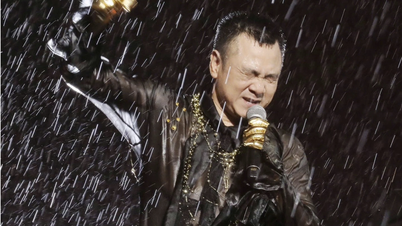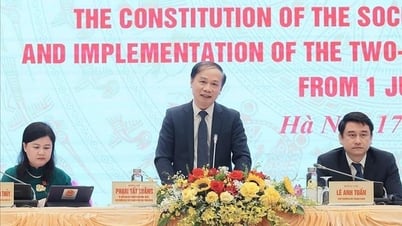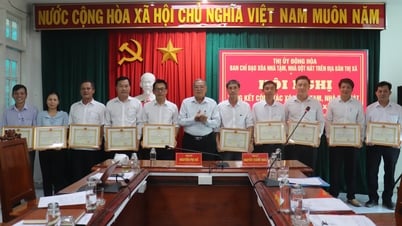It has been nearly 180 years since it was the "ghost haunting Europe" and throughout its development, Marxism has always encountered fierce opposition from non-Marxist viewpoints in general and from opportunism in the international communist and workers' movement in particular.
Therefore, Karl Marx and his comrades had to wage a fierce struggle against opportunism in all its forms. That struggle had great theoretical and practical significance, and at the same time left valuable lessons for our Party in the struggle against current manifestations of opportunism.
The "fight to the death"
The emergence of opportunism has caused great harm to the revolutionary cause of the working class. Because of the negative impacts of opportunism, Karl Marx and his comrades had to conduct a "life-and-death struggle" (1) against opportunism in many different colors such as Proudhonism, Lassalleism, Bakuninism... so that the international workers' movement could quickly recover and develop.
First, fight against Proudhonism. Proudhonism is a reformist and anarchist movement that circulated in the French workers' movement from the 1940s to the 1990s of the 19th century, represented by P.J. Proudhon. Standing on the position of the petty bourgeoisie, Proudhon strongly opposed the struggles of the working class against the capitalist regime. He had the illusion of peacefully reforming society and put forward the idea of gradual reform from above. With its views, Proudhonism seriously hindered the spread of scientific socialism in the international communist and workers' movement at that time. Faced with that situation, Karl Marx wrote many works: "Economic and Philosophical Manuscripts" (1844), "The German Ideology" (1846), "The Poverty of Philosophy" (1847), "On Proudhon" (1865)... severely criticizing the strategyless theory of Proudhonism. Karl Marx presented the basic principles of scientific socialism, criticizing the "social revolution" theory of Proudhonism. Karl Marx pointed out the illusion in the peaceful reform of society and the contradictions in Proudhon's theory. While criticizing Proudhon, Karl Marx argued for the theory of the struggle for the liberation of the proletariat, which is the unity between economic and political struggles to improve material life and liberate oneself, overthrowing the domination of the bourgeoisie. The struggle of the founders of Marxism against Proudhon's anarchism lasted for decades, until the defeat of the Paris Commune, when it was completely eliminated. And from here, Proudhon's opportunism no longer had any influence in the international communist and workers' movement.

Visitors visit the house where Karl Marx was born in Trier, Germany. Source: THX/TTXVN
Second, fight against Lassalleism. Lassalleism was formed in Germany in the 1960s, an opportunist movement led by F. Lassalle (1825-1864). This was an opportunist movement that had a negative impact on the development of the German workers' movement and the international workers' movement. Besides propagating the so-called "iron law of wages", Lassalle promoted an idealist view of the state, calling for the implementation of socialism through universal suffrage, turning the Prussian autocratic state into a "free state", after which, that state would use its war money to build cooperatives, helping workers escape poverty. F. Lassalle's ideology was actually a compromise and a follower of the bourgeoisie. Karl Marx wrote the work "Critique of the Gotha Programme" (1875), criticizing the mistakes of compromise and unprincipled rightism of the leaders of the German Social Democratic Party, exposing the opportunistic and reformist nature of the Lassalle faction. Karl Marx exposed the erroneous and reactionary nature of F. Lassalle on many issues; in which, he criticized the absurd thesis of the "liberal state" based on Lassalle's supra-class viewpoint. Also through this struggle, Karl Marx developed the theory of the communist socio -economic form, highlighted the inevitability and historical role of the dictatorship of the proletariat and further developed the doctrine of the state.
Third, the struggle against Bakuninism . Bakuninism is a petty-bourgeois political ideology and anarchism that had the widest influence in the international communist and workers' movement in the 1970s. Bakunin demanded the abolition of all forms of government, including the dictatorship of the proletariat, through conspiratorial riots; rejected all political activities of the working class... Karl Marx's struggle against Bakunin's petty-bourgeois opportunist and anarchist ideology was brought to the forefront of the First International. Karl Marx pointed out that Bakunin's ideology was "theoretically erroneous and practically reactionary", leading the working class to reformism. He pointed out that capitalism could not be abolished by abolishing the right of inheritance but had to be abolished by using the dictatorship of the proletariat. Through his fierce struggle, Karl Marx defeated Bakuninism and in 1872 expelled Bakunin from the First International, at the same time bringing Marxism to a new height in the theory of the proletarian dictatorship.
It can be said that Karl Marx conducted a radical struggle against opportunism in the years 1844-1873 and rejected almost all opportunist doctrines in the early stages of the international communist and workers' movement. This struggle had profound theoretical and practical significance, contributing to the development of the international workers' movement in the right direction. At the same time, it also created a breakthrough development of proletarian ideology, increasingly affirming the correctness and science of this doctrine, creating a solid foundation for the victories of later proletarian revolutions.
Issues raised in the fight against opportunist ideology and expression in Vietnam today
In our Party today, there is no opportunism like in Karl Marx's time, that is, there are no ideological trends, doctrines or organizations openly opposing the Party. However, opportunist ideas and manifestations appear in different degrees and natures. The manifestations of opportunism in our Party are manifested in the forms of political opportunism and pragmatic opportunism, which the 4th Conference of the Party Central Committee (12th tenure) pointed out as 27 manifestations of degradation in political ideology, morality, lifestyle, and manifestations of "self-evolution" and "self-transformation" within the Party. Opportunist ideas and manifestations have been and are reducing the leadership capacity, governing capacity, and fighting strength of Party organizations, threatening the survival of the regime. Therefore, inheriting the lessons and experiences from Karl Marx's struggle against opportunism, in order to prevent and repel the manifestations of opportunism in our country today, it is necessary to focus on solving the following issues:
Firstly, it is necessary to educate and raise awareness and responsibility among cadres, party members and the masses in the fight against opportunist thoughts and manifestations. Although opportunist elements come in many forms, they all have one of the 27 manifestations of degradation in political ideology, morality, lifestyle, “self-evolution”, “self-transformation”. Therefore, it is necessary to propagate and educate cadres, party members and the masses to detect opportunist elements in the Party, clearly see their harmful effects, and on that basis, raise responsibility in the fight against opportunist elements, contributing to building a clean and strong Party and political system.
Second, we must have a decisive, resolute, thorough, and uncompromising attitude in fighting against opportunist ideas and manifestations. Opportunist elements are like “boils”, “very poisonous germs”, “malignant tumors”; they are an obvious disaster, therefore, the entire Party must fight against them everywhere, at all times; in all fields; not giving them the opportunity to become an ideology, an ideological trend that has a great influence on the revolutionary cause. We must have a clear attitude, fight promptly, thoroughly, and decisively, not giving them “a piece of land” to exist. We must resolutely deal with and eliminate them no matter where they are, and “we must wash away that pus as quickly and thoroughly as possible, even if the dissection causes us to temporarily suffer intense pain” (2).
Third, determine appropriate content, methods, and forms to effectively combat opportunism. The fight against opportunism must be carried out on all fronts, everywhere, from theoretical struggle to practical struggle. Improve the quality of ideological and theoretical work, promote practical summaries, and theoretical research. “Strengthen the protection of the Party's ideological foundation, resolutely and regularly fight against erroneous, hostile, and opportunistic political views; fight, prevent, and repel the degradation of political ideology, morality, and lifestyle, and the manifestations of “self-evolution” and “self-transformation” within the Party” (3). Closely combine improving the quality of education and training of Party members with seriously implementing the stages and steps in personnel work, and effectively carrying out internal political protection work. Closely combine self-criticism and internal criticism with the inspection and supervision work of Party committees and inspection committees at all levels, the supervision of the mass media and the masses, and the inspection, investigation and trial work of competent agencies. Thereby promptly detecting, preventing and eliminating opportunist elements that have "infiltrated deeply and climbed high" into the Party apparatus.
In short, Karl Marx's fight against opportunism has left profound theoretical and practical implications, which guide the fight against opportunist ideas and manifestations in our Party today. To fight against opportunist elements requires building a clean and strong Party in terms of politics, ideology, ethics, organization and cadres, constantly improving the Party's leadership capacity, governing capacity and fighting strength. Only then can the Party strengthen its "resistance" and be strong enough to eliminate opportunist elements from the apparatus.
------------------------------------
(1) K.Marx and F.Engels, Complete Works, volume 4, National Political Publishing House, Hanoi, 1995, p.58
(2) VILenin, Complete Works, volume 27, National Political Publishing House, Hanoi, 2005, p.154
(3) Communist Party of Vietnam, Documents of the 13th National Congress of Delegates, volume 1, National Political Publishing House - Truth, Hanoi, 2021, p.183
Ta Ngoc (According to qdnd.vn)
Source
































































































Comment (0)